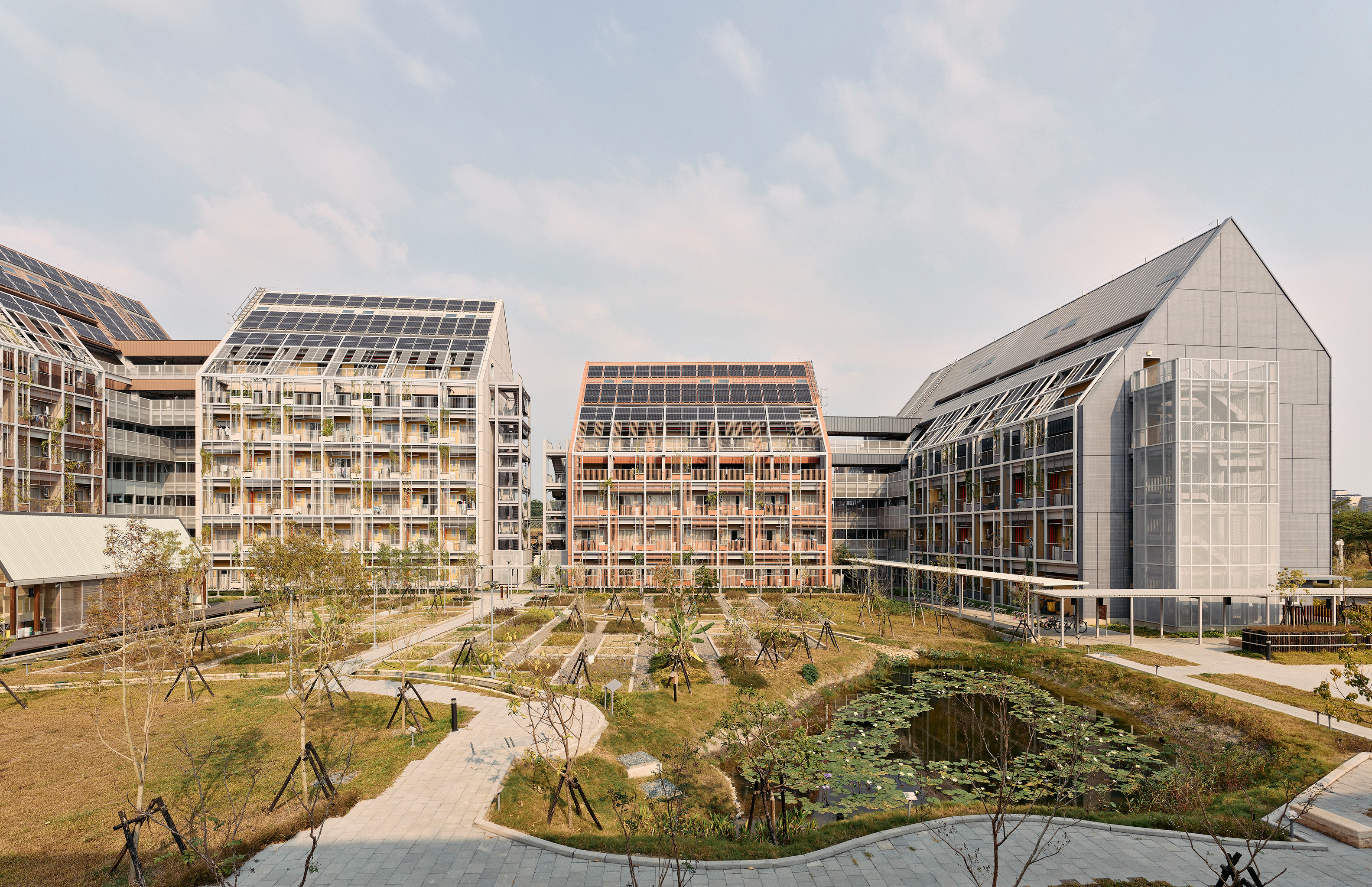
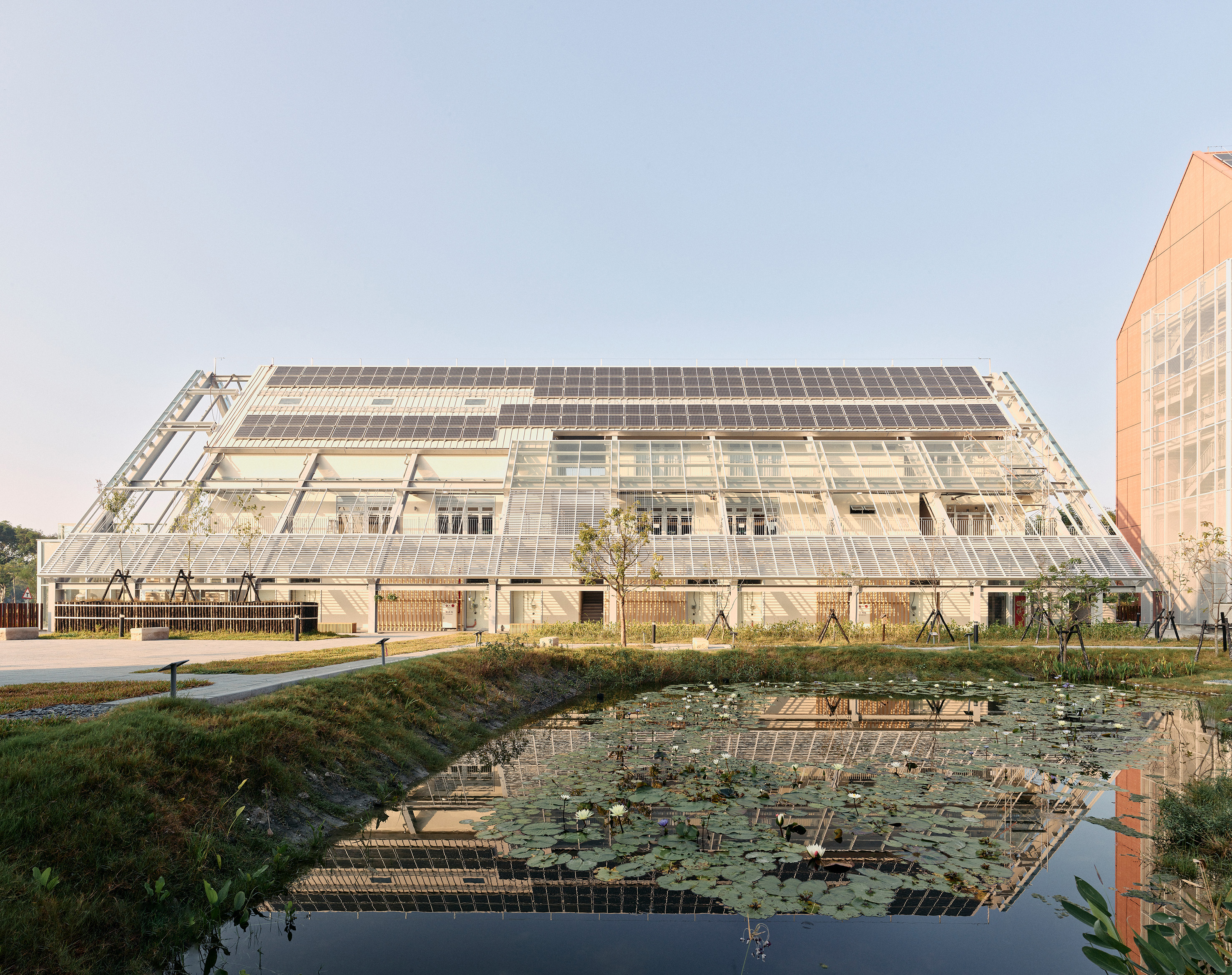
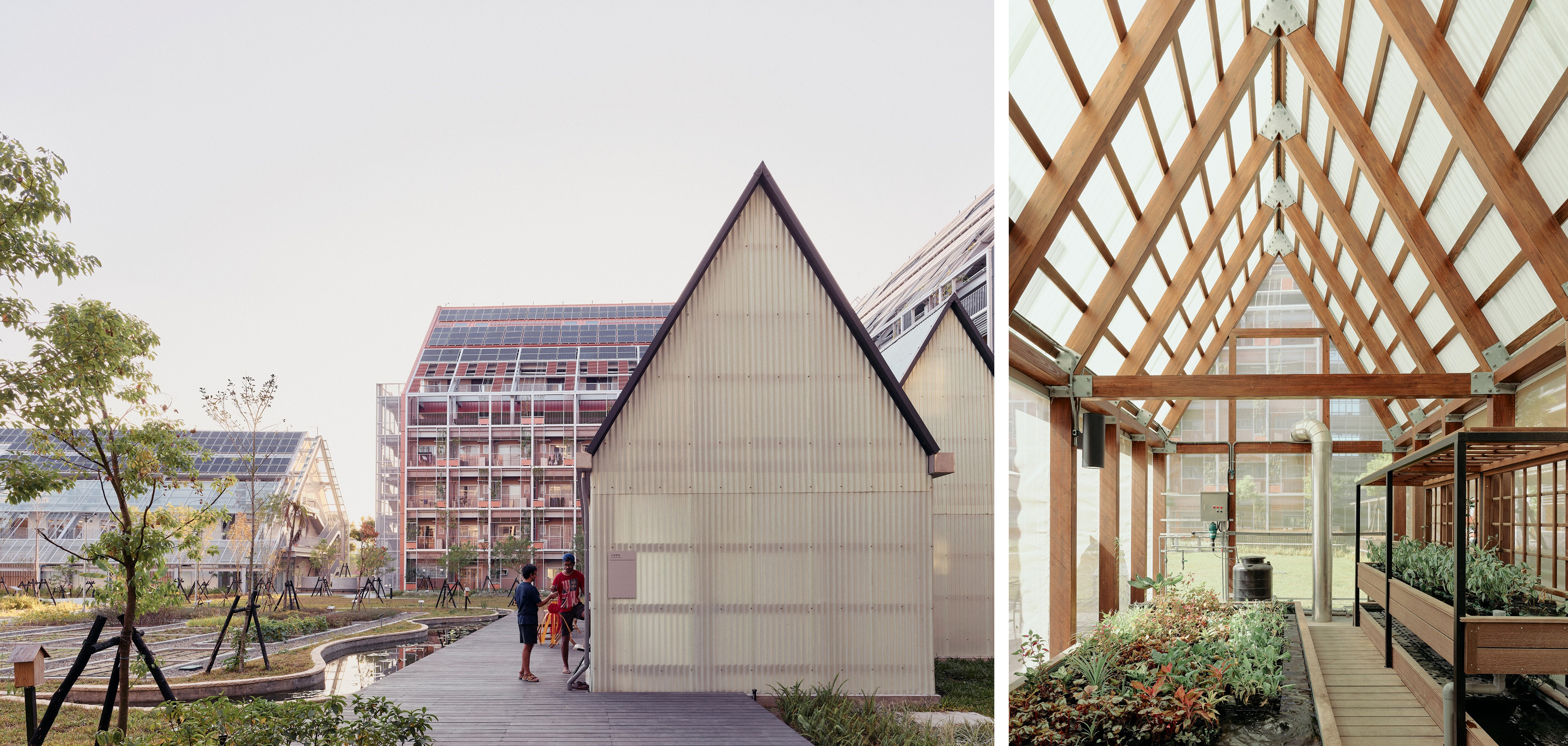
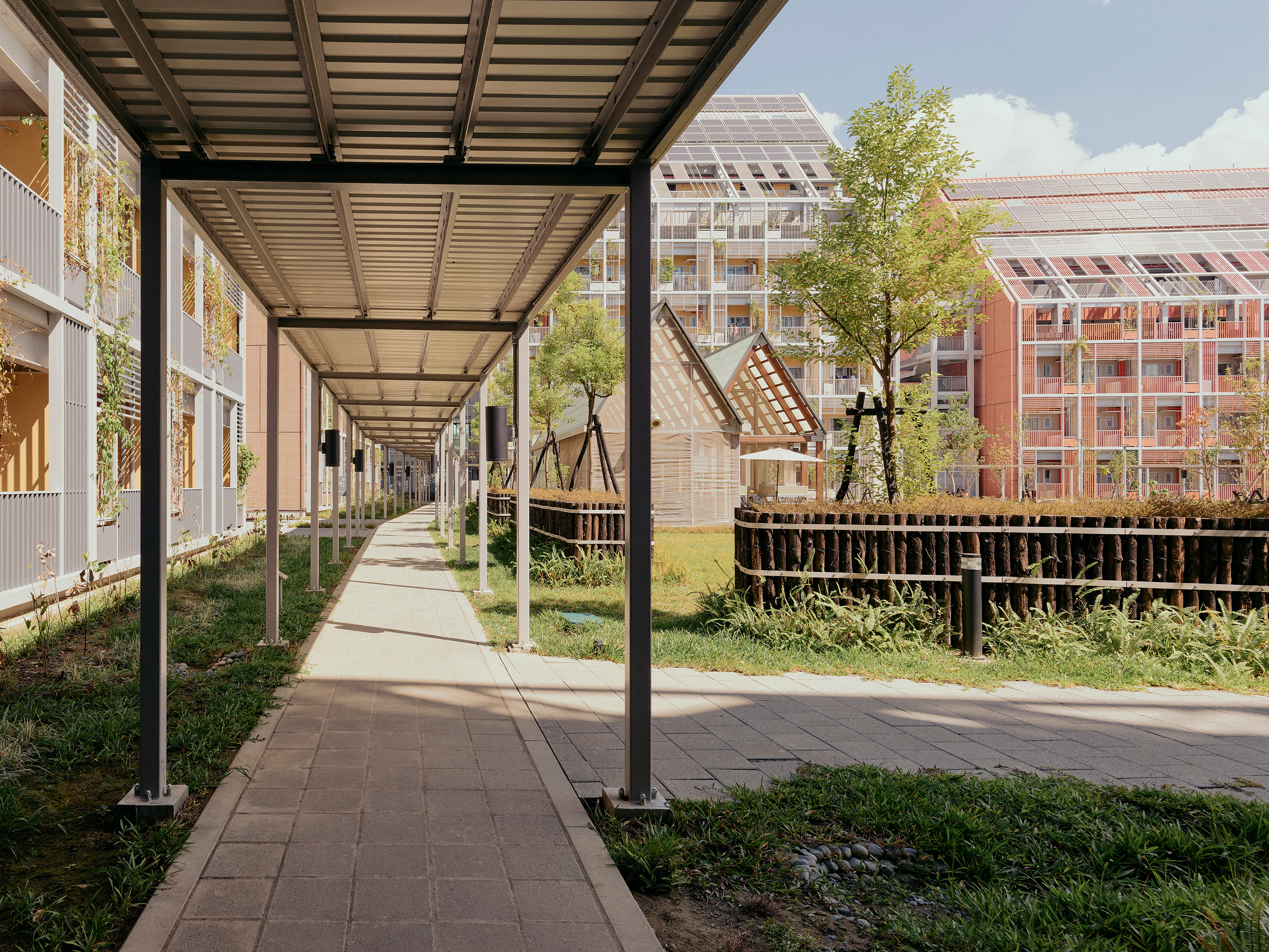
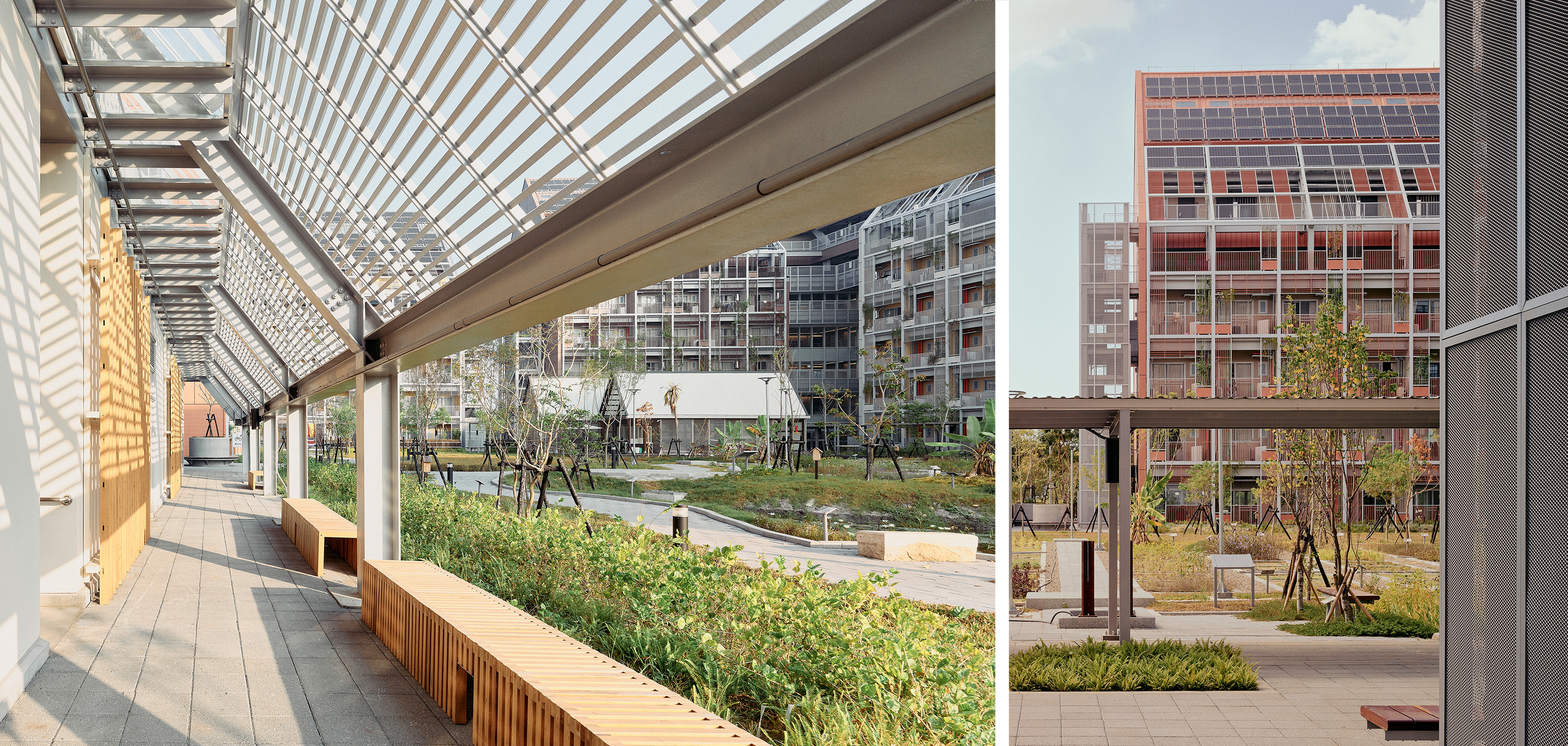 【獎項 Prizes】臺北市長獎 Taipei City Mayor Award、銅獎 Bronze Award
【獎項 Prizes】臺北市長獎 Taipei City Mayor Award、銅獎 Bronze Award
【國家或地區 Country / Region】 台灣 Taiwan
【設計團隊 Group / 設計師 Designer】 九典聯合建築師事務所 Bio-architecture Formosana - 郭英釗 KUO, YING-CHAO
【作品介紹 Description】
本園區為台糖實踐建築領域循環經濟的前瞻性開發案。核心概念是在資源有限的地球,仿效大自然廢棄物即資源的機制,以終為始,循環不息。此園區透過低碳建築各種創新策略嘗試與實踐,發展出可面對未來環境、經濟、社會性的永續載體。
聚落由七個高低不同量體組成,351個居住單元的住宅園區圍出一個大中庭,朝南開放;各量體立面都帶有相同基因:3.6米的模矩、鋼骨構造、預鑄樓板外牆、易組裝拆解的陽台元件。社區活動空間、複層化/垂直化的都市農園,圍塑出共享生活場域,各式再生能源利用,則創造廢棄物減量、可循環及生態之環境。
建築實踐從設計開始,空間模矩化,元件模組化、預鑄化,工法組裝化,可拆解;透過建築資訊模型(BlM)產生建材護照,組成建材銀行,讓建築元件可不斷再利用,跨過多個生命週期。回收台糖軌道建材循環利用,讓新建築與歷史對話,減少重製碳排。
「以租代售」使用權替代所有權是實踐循環經濟的重要手段,從居住空間、家具、空調家電、衛浴設備、照明等皆採長期租賃,促成循環與共享。
以「共享CO-LIVING」串聯社區住戶生活各個面向,建築不只建造,更須思考永續營運。期待透過硬體設施循環思維,帶動居住者互利共生的生活模式,社區終將自行運作、生生不息。
TaiSugar Circular Village (TCV) is a first housing project in Taiwan focuses on circularity, with close connection with nature and a “people-oriented” community.
There are 351 rental units in apartments totally. This development consists of three identical housing blocks, a circular demo-house (the shared facilities with gym, library, laundromat) and an eco-house (the shared kitchen with aquaponic system).
In this development, materials could be re-use in the future. In design stages, we considered the disassembly approach and prefab/precast construction system. The materials used are predominantly recycled and green. The village is constructed in modular design. The sloping roof increased the capacity for solar energy and rainwater harvesting.
The project has adopted a rental system on the light fixtures, furniture, sanitary wares and even art works. We replace the idea of ownership to usership—as such, the suppliers required to maintain and be responsible for the afterlife of products.
TCV generates its own solar energy, collects rainwater to re-use, and has a community farm that produces food - a self-sufficient community.



